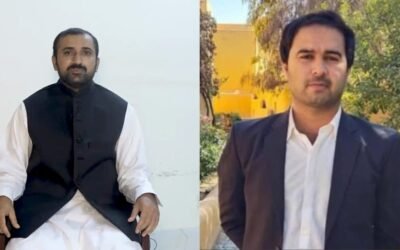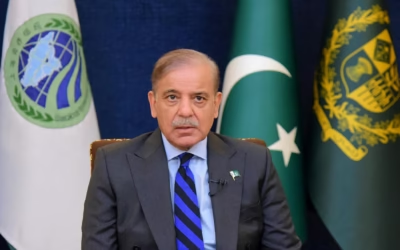This article provides a brief summary of the key findings of the “Indian Chronicles” report by EU DisinfoLab. It exposes a sophisticated, long-running influence operation designed to serve Indian interests by discrediting rival nations, particularly Pakistan, on global platforms.
In an era where information is a battleground, a groundbreaking report by EU DisinfoLab, titled “Indian Chronicles,” has exposed a sophisticated, 15-year-long operation meticulously designed to serve Indian interests by discrediting rival nations, particularly Pakistan. This deep dive into a vast network of fake media, resurrected NGOs, and identity theft reveals a concerted effort to manipulate international discourse at the highest levels, including the European Union and the United Nations. The findings of this report do not only reveal deceptive practices; they carry profound implications for Pakistan’s national security, international standing, and societal cohesion.
A Web of Deception Unveiled

Courtesy of, EU DisinfoLab
The “Indian Chronicles” report, published by EU DisinfoLab, details an extensive influence operation that has been active since 2005 and was still ongoing as of the report’s publication in December 2020. This elaborate network, orchestrated by the Srivastava Group and amplified by Asian News International (ANI), had a clear, overarching mission: to “discredit nations in conflict with India, particularly Pakistan, and to a lesser extent, China.”
Meanwhile, its long-term objectives were twofold: to “reinforce pro-Indian and anti-Pakistan (and anti-Chinese) sentiments” within India, and internationally, to “consolidate India’s power, improve its perception, damage the reputation of other countries, and ultimately gain more support from international institutions like the EU and the UN.”
The scale of this operation is staggering. The report uncovered the “resurrection of over 10 UN Human Rights Council accredited NGOs,” many of which were previously defunct. These organizations, once dormant, were brought back to life to serve a new, deceptive purpose.

Courtesy of, EU DisinfoLab
Even more alarmingly, the operation involved “identity theft” and the “resurrection of deceased individuals,” such as Professor Louis B. Sohn, a renowned international law expert who passed away in 2006 nevertheless, “seemingly attended” UN Human Rights Council meetings and other events, years after his death. This audacious tactic extended to impersonating prominent European figures like Martin Schulz, former European Parliament president, and James Purnell, a former UK Government minister.
Beyond the manipulation of existing entities, the “Indian Chronicles” created an astonishing number of entirely new, fabricated platforms. The investigation revealed the “creation of more than 750 fake media outlets covering 119 countries” and the registration of “over 550 domain names.” These digital facades were designed to mimic legitimate news sources, lending an air of credibility to the disinformation they propagated. The primary targets of this elaborate scheme were international institutions, particularly the EU and the UN, where critical policy decisions are made and global narratives are shaped.
Sophisticated Tactics of Disinformation
The methodology employed by the “Indian Chronicles” was as intricate as it was insidious, utilizing a range of tactics to achieve its objectives:
- Exploitation of MEPs: A key tactic involved “using Members of the European Parliament (MEPs) to create a ‘mirage of institutional support'” from European institutions for these minority groups, favoring Indian interests and opposing Pakistan, and China. This included organizing seemingly official trips for MEPs to sensitive regions like Kashmir, Bangladesh, and the Maldives, which were then “misleadingly presented as official EU delegations,” despite lacking genuine institutional endorsement.
- Active Presence in Geneva and UN Human Rights Council: The operation maintained a highly active presence in Geneva, particularly at the UN Human Rights Council. This involved “organizing side-events and demonstrations” in support of minority rights and, crucially, “impersonating extinguished UN-accredited NGOs or using speaking slots reserved for NGOs whose original missions were unrelated.”
A striking example is the, Canners International Permanent Committee (CIPC), a fake-NGO, originally focused on the canning industry, after resurrection suddenly began focusing on Pakistan and human rights issues at the UN. The report found that “a network of at least 10 UN-accredited NGOs were directly tied to the Srivastava family, promoting Indian interests and criticizing Pakistan.”

Courtesy of, EU DisinfoLab
- Creation and Dissemination of Fake Media: The operation established a vast network of fake media outlets in Brussels, Geneva, and globally. These included “EP Today” and its successor “EU Chronicle,” which served as “honeypots” to attract MEPs to sign pro-Indian articles. “EU Chronicle,” a new fake media with fake journalists, essentially provided a platform for MEPs to sign pro-Indian op-eds, with 11 MEPs writing or endorsing articles in less than 6 months. This content was then “repackaged and disseminated via ANI (Asian News International) and obscure local media networks in at least 97 countries to multiply negative online content about countries in conflict with India, especially Pakistan.
- Resurrection of Shuttered Organizations and Deceased Persons: This pattern of reviving defunct NGOs, media outlets, and even deceased individuals like Louis B. Sohn was a hallmark of the operation, adding a layer of deceptive legitimacy to their activities.
- Use of Virtual/Fake Addresses: The network frequently employed Regus virtual office addresses or simply fake addresses, further obscuring their true origins and intentions.
- Misleading Representation: The operation consistently misled by presenting the views of individual MEPs as general support or official positions from the European Union, creating a false impression of widespread institutional backing.
- Cybersquatting: A particularly aggressive tactic involved “registering over 550 domain names, with a significant proportion bought for cyberwarfare with Pakistan, to cybersquat on domains Pakistan might later wish to use.” This preemptive measure aimed to control the digital narrative and prevent Pakistan from establishing its own online presence effectively.
Conclusion
The “Indian Chronicles” report serves as a critical wake-up call for the international community and for Pakistan itself. It highlights the urgent need for decision-makers to establish frameworks in order to sanction actors abusing and blatantly violating international institutions. For Pakistan, this necessitates a robust and proactive counter-disinformation strategy, investing in digital literacy, strengthening its own narrative communication, and working with international partners to expose and combat such malicious influence operations. Pakistan’s resilience in the face of such challenges is paramount, as safeguarding its national security and cohesion requires not only strong defense but also a vigilant and truthful voice on the global stage.




























